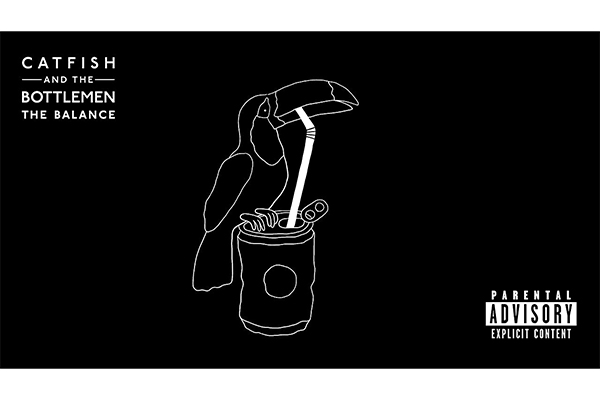If there was an equation for alternative rock hits, Catfish and the Bottlemen would nail it every time.
Before performing across Europe and the U.S., Catfish and the Bottlemen formed 12 years ago in Llandudno, Wales. Now, their April 26 release The Balance follows their alternative rock formula portrayed in previous albums, but doesn’t extend beyond creative boundaries.
Maintaining their minimalistic vibe, Catfish resorted to single-word track titles that revolve around the chorus. Although a relatively short album, The Balance unintentionally creates a visual map of where they want to be, where they’re stuck and what they’re doing about it, all within 35 minutes.
Catfish kicks off the album with a few promising tracks such as “Longshot,” “Fluctuate” and “2all.” While “Longshot” resembles their usual alternative rock style, the shifting tempos in “Fluctuate” and the smooth ballad of “2all” bring an eccentric edge. These bass-driven headbangers guide the listener to hear the sound Catfish may be working toward.
The following tracks up until “Intermission” are a testament to where Catfish may be stuck — in a guitar-heavy rock and roll world. Although these tracks are easy to jam out to, they fail to present variety to the album.
Toward the end of the album, the brief, subtle track “Intermission” serves as an actual intermission, reminding the listener of who Catfish truly is — just a band that loves to produce and perform music. Undoubtedly, the following tracks revive that energetic spark, steering the remainder of the album.
Aside from the contained innovation of the album, Catfish did dive deeper into personal topics, referring to lead singer Van McCann’s father in “Conversation” or exploring the idea of true friendship in “2all.” However, Catfish mainly stuck to describing relationship issues, including the ever-changing romantic feelings in “Fluctuate” and the mundaneness of a stagnant relationship in “Coincide.”
Despite the inside-the-box approach to The Balance, Catfish presented fairly catchy tunes, worthy enough for dancing. Even if alternative rock isn’t a common interest, the tracks warrant listeners to bang their heads to the well-thought-out melodies.
Although most of the album consists of a harder rock sound, it does have a few lighter, simpler moments. A light strumming of the guitar in “2all,” a dreamlike energy in “Intermission” and a semi-acoustic beginning in “Overlap” all portray that the band does have a softer side to them.
Following the trend of the closing tracks in previous albums, The Balance’s closer “Overlap” ends abruptly as well. Although on the surface it implies the main character’s girlfriend in the track will end up with him again, it might have a deeper meaning to each album as a whole in that there will always be something more. Perhaps this acts as a cliff-hanger to the future for the band.
In a world of mainstream music, The Balance fits the mold of a classic alternative rock album. Not straying far from what they’re used to, Catfish delivers catchy, relatable music. However, this suppressed creativity results in the album’s downfall.
In all reality, the album’s true meaning stems from what Catfish’s intention was — to provide something new and exciting or familiar and consistent? Honestly, Catfish has never claimed neither, and thus, their future endeavors remain a mystery.
The Balance
Rating: 3.5/5





















